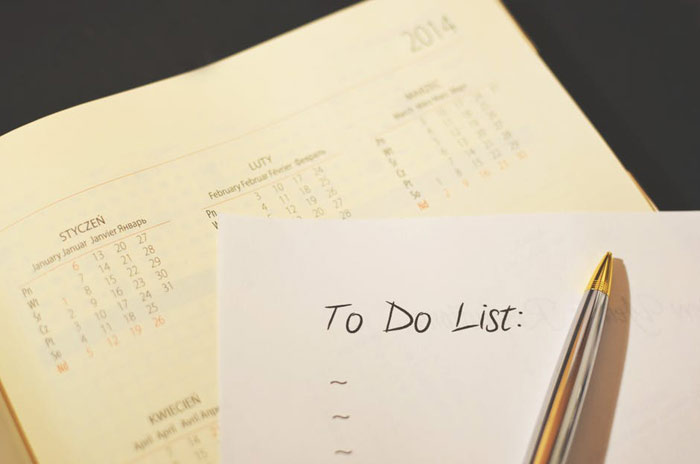Kennedy, Churchill, Einstein, Balzac, Tchaikovsky… Each of these people made a huge contribution to world science and culture. But they are united by another, less obvious achievement – each of them had some habits that reinforced their genius nature and allowed them to achieve more. What should you learn from great people to develop extraordinary abilities and increase your own effectiveness?

Habit #1. Reading
All great people read a lot and quickly. For example, Bill Gates reads at least one book a week, and every year he publishes a list of his favorites. Warren Buffett devotes 80% of his time to reading, Mark Zuckerberg, despite his enormous workload, sets aside time every day for various print media. Big fans of reading were Steve Jobs, John F. Kennedy, Theodore Roosevelt, Napoleon Bonaparte, Albert Einstein, and Leo Tolstoy.
It is known that Honore de Balzac read with great speed – it took him half an hour to write a novel of 2,000 words. Only John F. Kennedy could compare with him, whose phenomenal reading speed reached more than 1000 words per minute.
In addition to his reading ability, the inventor Thomas Edison had an excellent memory – he could memorize a book almost word for word. American President Franklin D. Roosevelt’s speed-reading skills are striking, as he could cover a paragraph of text at a glance.
Franklin Delano Roosevelt
How to develop your speed-reading skill:
- we get rid of “the brake” – the habit of pronouncing the text to ourselves, re-reading previous sentences and paragraphs;
- we develop a peripheral vision – this will allow us to cover large sections of text with our eyes;
- mastering superficial reading – searching for keywords that help to understand the meaning of a sentence in a short time.
While speed reading skills can be developed with regular training, the daily reading habit is more difficult to develop. To do this, you need not only desire but also free time. How did great people manage to find a few hours for books in their busy daily routine? They all had good habit #2 – getting up early.
Habit # 2. Getting up Early

Tim Cook
Most brilliant people start their day very early – at about 4-5 am. For example, Benjamin Franklin woke up at 5:00, Apple CEO Tim Cook at 4:00, Bill Gates at 5-6:00. Charles Darwin got up at 3.30, and at 4.00 he was already starting work.
Even Mozart wrote in his diary that by 6.00 he would already complete his morning toilet, and at 7.00 he used to start composing music. Vincent van Gogh adhered to about the same routine – he began to paint at 7.00 and finished work at about 18.00.
Getting up early allowed great people to devote their most rewarding morning hours to hard work, as well as noticeably lengthen their days. Here are some tips to help you wake up your early morning person:
- set goals for the morning – you must know exactly why you want to wake up at 5 o’clock, what you will be doing, how to manage this time;
- organize “correct” falling asleep – avoid heavy food and gadgets, read, try to go to bed at the same time;
- create your own awakening ritual – meditate, plan the day, indulge yourself with your favorite food, do the plank exercise, etc.
Habit #3. Self-Discipline instead of Motivation

Stephen King
Most prominent people live and work according to a strict schedule. For example, Stephen King believes that the habit of creating is developed in the same way as the habit of sleeping a certain number of hours a day and is a consequence of self-discipline. This is what allows him to write 6 pages a day.
Ernest Hemingway and many other literary and artistic figures adhered to the daily routine. It is indispensable for business geniuses because this is the only way to manage to do all the planned things during the day.
How to learn self-discipline:
- set realistic goals that can be achieved in a short time and reward yourself for victories;
- learn to get positive emotions from the activities that you have planned;
- make good habits and build your day on them (for example, get up early, do sports, make a healthy breakfast, go for a walk with children, etc.).
Habit #4. Fully Relax

Albert Einstein
A person’s productivity directly depends on his ability to recuperate. This can be done by walking (Beethoven, Darwin, Freud, and Dickens did this), reading (like Roosevelt or Napoleon Bonaparte), or a creative hobby (for example, Einstein rested playing musical instruments).
A quick nap is a great way to take a break. Kennedy, Rockefeller, Dali, Einstein and Margaret Thatcher loved to take a nap during the day.
To relax and have a rest during the day, you can rely on:
- breathing exercises;
- meditation;
- change of the type of activity (after intense mental work, you can do physical labor and vice versa);
- massage, a shower, a pool;
- sounds and images of nature.
Habit #5. Little Sleep

Margaret Thatcher
The normal sleep duration for the average person is 7-8 hours. However, many outstanding people sleep much less. For example, Napoleon and Franklin needed 4 hours of rest at night, Mozart and Margaret Thatcher – 5 hours, Elon Musk – 6 hours, and Nikola Tesla sometimes slept only 2 hours.
Among geniuses, the so-called polyphasic sleep is also common. For example, Leonardo da Vinci slept for 15 minutes every 4 hours. This option is not suitable for everyone, but most significant personalities agree that taking a nap increases productivity.
How to learn to sleep less:
- make sleep more effective: sleep in the dark, give up gadgets 2 hours before rest;
- do not consume a lot of stimulating drinks (coffee, tea, energy drinks); avoid heavy meals in the afternoon.
Habit #6. Concentration

Wolfgang Amadeus Mozart
To get the job done quickly and well, most geniuses gave up multitasking. Although Elon Musk, who once stated that he could check email and play with his children simultaneously, is a living refutation of this rule.
There are many ways to focus on completing your current tasks. For example, Leonardo da Vinci, Mozart, and many other great talents kept detailed diaries. In their opinion, it helps to calm down, relieve tension and streamline the train of thought.
How to learn to concentrate:
- give up multitasking – solving several problems at once will not allow you to focus on any of them fully;
- separate important and minor matters and concentrate on the former;
- do more stressful tasks in the morning;
- keep all distractions (gadgets, books, etc.) out of sight while working.
Being a genius is a gift that each of us is endowed with within varying degrees. And if we add to this the experience and knowledge of outstanding people of the past and present, we get a chance to achieve really great success!










